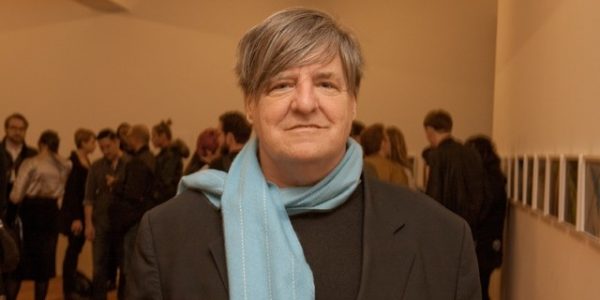
Kevin Killian was one of the most prolific writers of our time, having written numerous collections of poetry, essays, plays, a memoir, as well as over 2,500 book reviews on Amazon. He was also very well-known and beloved across literary and arts communities, kind of socially prolific too, if you will. Can you talk a bit about the point in that dynamic history of his that the two of you came to know each other and whether you were familiar with his work prior? What was that first impression like?
I met Kevin Killian on a trip to San Francisco. We had been corresponding for a few years, though I can’t remember when we first spoke or why. I showed him my poems and he offered me his advice; this was a fairly common experience with Kevin. He was a generous reader and poet, especially to young writers. Our first meeting was in the airport, where he picked me up. We drove out to Oakland to see a show at a new gallery. The night before, I had had a dream about Arthur Russell, who I hadn’t realized used to briefly date Kevin, and when I told Kevin about it, he said, “Funny, you know, I knew Arthur.” I was floored. In the dream, Arthur handed me a book, which opened to a page that read: “Your life.” Seriously. I’ve never had a dream like that, and when I told Kevin about it, he laughed. Kevin had a great laugh. My first impression was that I loved him. That never changed.
Kevin was born in New York and studied at both Fordham and later Stony Brook, before moving to San Francisco— a kind of pivotal moment not just for him, but for the entire New Narrative movement. Can you speak to about Kevin’s involvement in the New Narrative scene?
The early dynamics of New Narrative are a little vague to me, though I’m sure Kaplan Harris or Robert Gluck or Kevin’s partner, Dodie Bellamy, could clear it up. (I wrote a bit about this time here.) Bob Gluck’s workshop was already going at the time, and I believe Kevin and Dodie attended it in their early years of living in San Francisco. I always think of New Narrative as a very loose arrangement – concentrated in the Bay Area, but spread to Los Angeles and New York and, eventually, London and Paris. New Narrative writers are truth-tellers and advocates – not only of their own lives but the lives of their friends and lovers. Kevin did that exceptionally well. It also helped that he edited a journal, Mirage, that supported his friends’ writing.
I understand Kevin was consistently devoted to engaging with the work of other poets and writers in the community, and he worked very closely with the poems of Jack Spicer, most recently working on a volume of Spicer’s letters. What was it, do you think, that kept him so enthusiastic about Spicer specifically, but also the careful work of editing for so many others?
Kevin and I never spoke directly about his love of Spicer. In my experience, he wasn’t the sort of researcher who allowed his interest in one poet to become his only interest. Often, when I was with him, we talked about other things – or about Spicer only indirectly. If could wager a guess? The pain and struggle in Spicer’s work appealed to Kevin. Like Kevin, Spicer wrestled with alcohol and substances, and the hardship that accompanies addiction was a subject they shared. But there’s a lot more to Spicer – and Kevin – than that.
For the person unfamiliar with the work and life of Kevin Killian, what should they know about him both as a writer and a person? What do you think Kevin would tell them about himself?
Since he passed, I’ve been asked this question a few different ways. Can I recommend you read the obituary I wrote for him? It summarizes who he was for me and who he was for a lot of people. As for what Kevin would tell them about himself… well, his poetry and prose and friendships tell us a lot about who he was. His life contained so many lives. +
